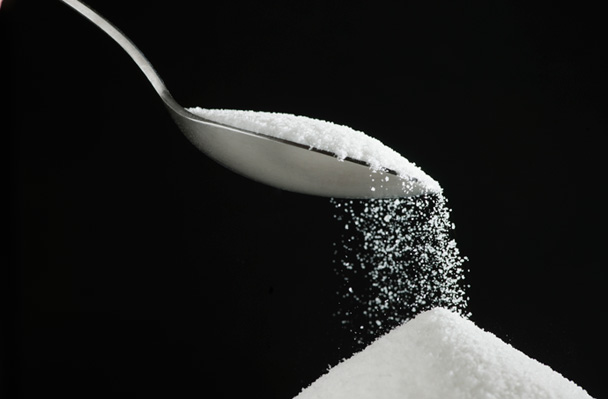Sugar—what would we do without it? It is the lifeline for every pancake ever tossed; the key to a perfect cake; the reason coffee is palatable first thing in the morning; and the only hope rhubarb ever had of becoming a noteworthy pie. So simple. So valuable, wars have been fought over it. So when Robert Lustig, M.D., a professor of pediatric endocrinology at the University of California, San Francisco, launched an attack on the white stuff that went viral on YouTube and subsequently reached an even wider audience with Gary Taubes’ alarmingly titled “Is Sugar Toxic?” last April in The New York Times Magazine, dessert and sugary drink lovers everywhere took note.
Could sugar single-handedly be to blame for a host of illnesses, including cancer, diabetes, heart disease, and obesity? Say it ain’t so. “It’s a question of how much” says Christine Gerbstadt, M.D., R.D., a physician and dietitian in Sarasota, Florida. “If you are physically active and eating sugar in moderation, it’s not going to destroy your health. On the other hand, it’s not going to improve it, either.”
Many dietitians are on the fence about the latest attack on sugar. “It’s an interesting debate, but it leaves the average person with more questions than answers,” says Melissa Joy Dobbins, R.D., a spokesperson for the Academy of Nutrition and Dietetics in Chicago. “To show a cause-and-effect relationship, you need proper studies. It reminds me of a cartoon I read years ago, where everyone had died—and the common denominator was that they’d all eaten carrots.”
But while the big guns (American Heart Association, American Cancer Association, FDA, and so on) are still noncommittal on the health risks associated with sugar, plenty of people are looking to other options to satisfy their sweet tooth, especially as those lists of New Year’s resolutions get compiled.
The alternatives are plentiful: saccharin, stevia, aspartame, acesulfame-K, sucralose, and Neotame have all been FDA-approved as low-cal sweeteners. But these, too, have come under fire. Everyone remembers the saccharin cancer scare back in the ’70s, when scientists found it caused cancer in lab rats. The FDA has since cleared saccharin’s reputation, but the damage has been done, and to this day, sugar substitutes have to fight for a clean bill of health in public perception.
Then there’s the matter of a study that made a big splash in 2005, when researchers at the University of Texas Health Science Center in San Antonio determined that people who drank diet sodas were actually more likely to gain weight than those sipping the regular stuff. Advantage: sugar advocates. But not so fast: “It’s less clear cut,” says researcher Christina Shay, Ph.D., a professor in the department of biostatistics and epidemiology at the University of Oklahoma Health Sciences Center in Oklahoma City. In a November 2011 study, Shay found that women who consumed two or more sugary beverages a day had higher rates of triglycerides in their body (a risk factor for heart disease) and impaired fasting glucose levels (a precursor to diabetes) than those who drank one sugary beverage or less daily. When it comes to the diet soda study, says Shay, “it could be a matter of reverse causation—those who are already overweight use diet sweeteners in an effort to lose pounds, not the other way around.”
What’s more, the weight gain associated with diet sweeteners could very well be attributed to another American phenomenon: “I call them the Diet Coke and Big Mac crowd,” says Barry Popkin, Ph.D., a professor of nutrition at the University of North Carolina at Chapel Hill, and author of The World Is Fat, alluding to a cultural tendency to sacrifice a little in order to splurge a lot. It’s Popkin’s opinion that if we didn’t know the soda was diet (or the cake was low-cal or the ice cream was sugar-free), we’d all eat it, be happy, and lose weight. “There is far too much evidence that shows we do not consume based on calories anymore,” he says. “We eat so much that the issue of hunger and physiological need is lost. Hence we eat the box in front of us, and if the box has less calories, some research suggests [that our calorie intake will drop.]”



 Pinterest
Pinterest


